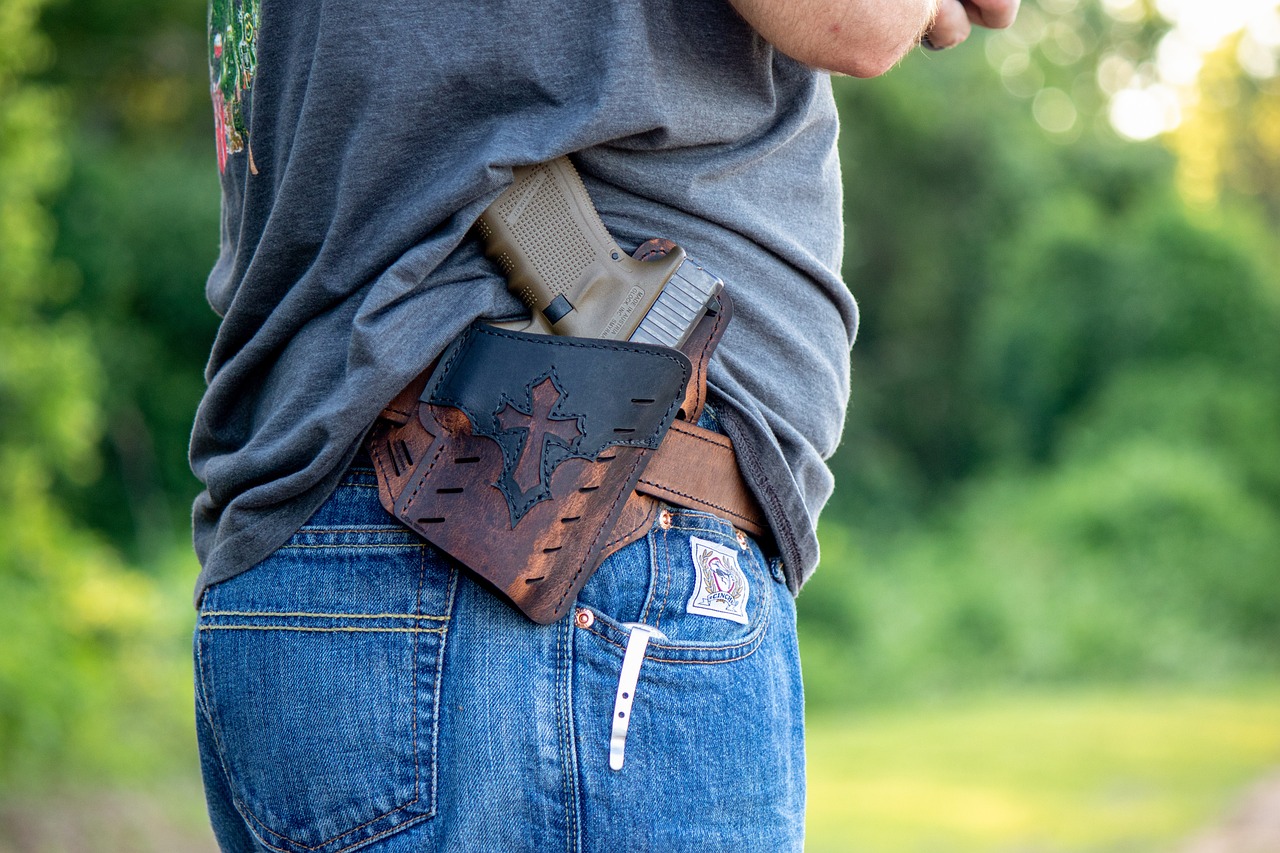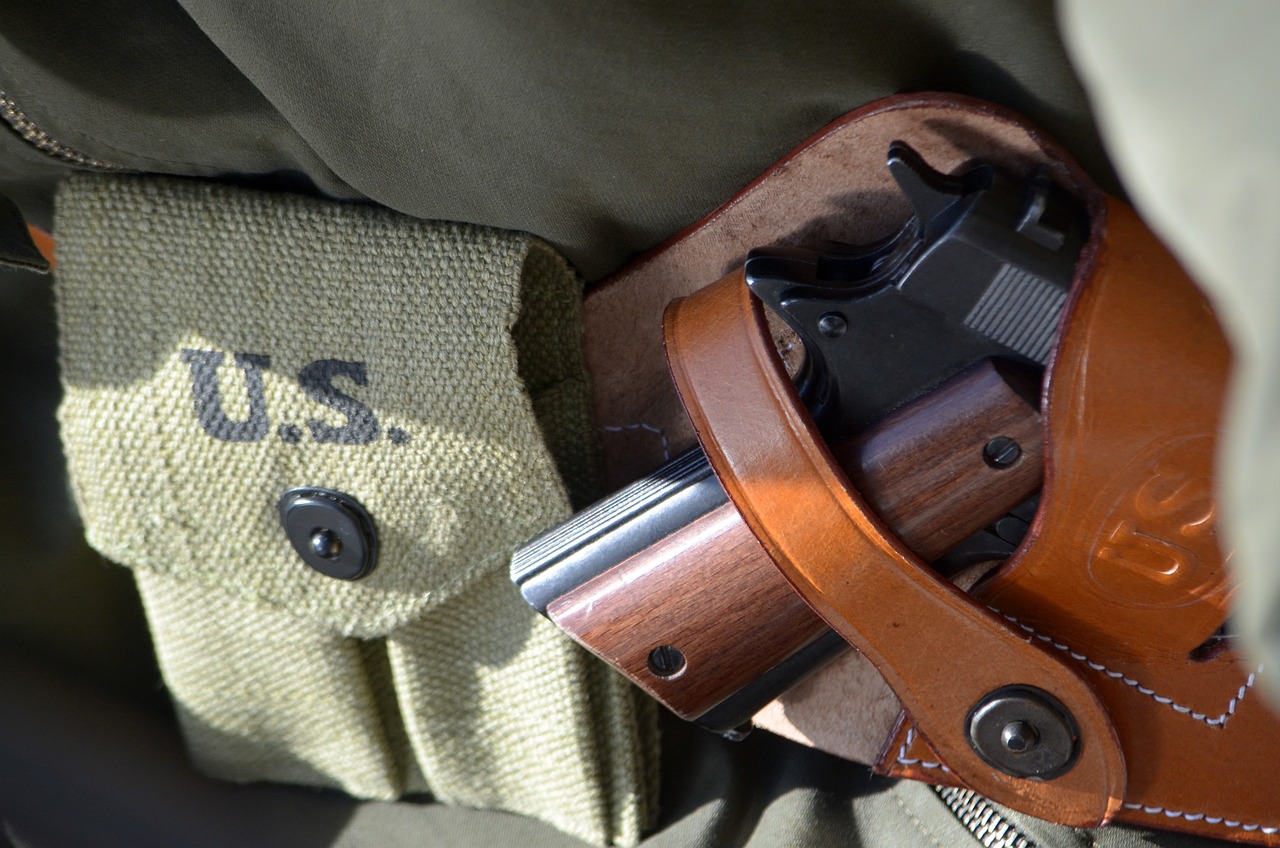Constitutional Carry vs. Concealed Carry: What’s the Difference?
Posted by Mandu Moses on Sep 1st 2023
If you own a firearm or plan to buy one, you may wonder about your legal right to carry it in public. Depending on where you live, you may have two options: constitutional carry or concealed carry. But what do these terms mean, and how do they affect your ability to exercise your Second Amendment right?

Photo by Chris Chow
Here is a brief overview of the difference between constitutional carry and concealed carry.
What is constitutional carry?
Constitutional carry, also known as permitless carry, is the ability to carry a concealed firearm without paying a fee or acquiring a permit from your resident state. There are currently 25 states that have constitutional carry written to allow their residents to carry a concealed handgun without acquiring a permit.
The main advantage of constitutional carry is that it streamlines the process of carrying a firearm and lets people exercise their rights without government interference. You don’t have to take a training course, pass a written test, or submit an application to the state. You just need to buy a firearm and carry it legally.
What are the drawbacks to constitutional carry
Constitutional carry attracts some drawbacks as listed below:
- It limits the ability to travel across state lines with a firearm since not all states recognize constitutional carry and some states do not honor other states’ permits. This can create confusion and legal risks for gun owners who are unaware of the different laws in each state.
- It reduces the incentive for gun owners to receive proper training and education on firearm safety, laws, and ethics. This can increase the risk of accidents, misuse, and irresponsible behavior with firearms.
- It may increase the likelihood of encountering armed individuals in public places, which can create tension and fear among some people. It may also make it harder for law enforcement to identify lawful gun carriers from criminals.
What is concealed carry?

Photo by gmsjs90
Concealed carry, on the other hand, is the ability to carry a concealed firearm with a state-issued permit or license. An extensive number of states in the US require people to have a state permit to carry a concealed firearm this includes Washington, DC. Concealed carry permits usually involve taking a training course, passing a written test, paying a fee, and submitting an application to the state. Concealed carry permits may also be subject to background checks, fingerprinting, and other criteria depending on the state.
The main benefit of concealed carry is that it offers more flexibility for gun owners who want to travel with their firearms. Concealed carry permits are often recognized by other states through reciprocity agreements, which allow permit holders to carry in those states without applying for another permit. For example, Michigan has reciprocity with 39 states where permit holders can carry their firearms legally.
What are the disadvantages of concealed carry?
Concealed carry also has some disadvantages highlighted below:
- Concealed carry imposes additional costs and burdens on gun owners who want to exercise their right to bear arms. It may also exclude some people who cannot afford or qualify for a permit.
- It creates a database of gun owners that can be accessed by the government or hackers. This can raise privacy and security concerns for gun owners who do not want their personal information exposed.
- It may create a false sense of security for gun owners who rely on their permit as a guarantee of safety. It may also create complacency and overconfidence among gun owners who do not practice or update their skills regularly.
Constitutional carry vs. concealed carry: which one is good for you?

Image by Szkszyp
Ultimately, the choice between constitutional carry and concealed carry depends on your personal preference, situation, and location. You should weigh the benefits and risks of each option and follow the laws of your state and the states you visit. You should also be responsible and respectful when carrying a firearm in public, regardless of which method you choose.
Regardless of the method you choose to carry, always remember to observe safety of yourself and those around you by arming yourself with appropriate accessories such as handgun cases to secure your weapon firmly and securely on your person.
Conclusion
Constitutional carry and concealed carry are both ways of carrying a concealed firearm in public, but they have different advantages and disadvantages. Constitutional carry is easier and cheaper, but more limited in scope. Concealed carry is more complicated and expensive, but more widely accepted. Gun owners should be aware of the laws and regulations of their own state and the states they plan to visit before carrying a firearm.
